The Moth returns to Joburg after a sold-out event in 2016 for a night of storytelling at UJ on Sat, Mar 16.
Known as a podcast to most, The Moth has many legs – not least of which are their live events that bring personal, candid stories to audiences around the world. These events capture the feeling of nights spent on the porch (or 'stoep', if you're in South Africa) telling stories with friends. For their upcoming Joburg Mainstage event, The Moth rallies Lebo Mashile as host, along with five storytellers: Nsovo Mayimele, Michael Maina, Mohammad Jasem, Matilda Matabwa, and Webster Makombe. They will be joined on stage by award-winning violinist Lynn Daphne Rudolph, an artist drawn to sound as protest and a means to express and transmute injustice into tangible healing.
If you're new to this fascinating organisation, we delved into the history of The Moth and the art of storytelling. As the show nears (it's understandably already sold out though), we caught up with a few of the guest speakers to find out what storytelling means to them.
Lebo Mashile – host
A household name in South Africa, Lebo Mashile is an award-winning writer, performer, producer, actress, and activist whose lyrical and gutsy poetry has captivated audiences worldwide. Storytelling is the golden thread that unites her many mediums and modes. As a public speaker and presenter, Mashile's enthusiasm is infectious, making her the perfect host for The Moth's Mainstage event in Joburg.
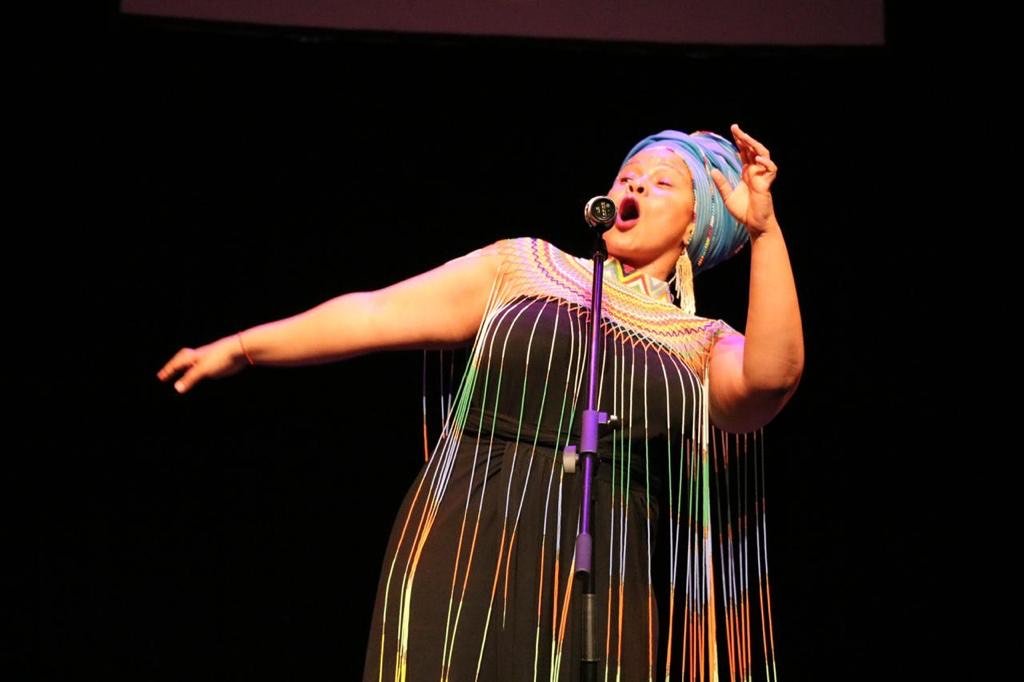
As an actress, she's appeared on the big screen in the Academy Award-nominated film Hotel Rwanda, as well as stage adaptations of K. Sello Duiker’s The Quiet Violence of Dreams and Pamela Nomvete’s Ngiyadansa. She's also written, produced, and co-starred in a Naledi Award-nominated original theatre production on the life of Saartjie Baartman, Venus vs. Modernity. Mashile's poetry collection In A Ribbon of Rhythm won the NOMA Award for Publishing in Africa. A research associate at the University of Johannesburg, she's currently developing a play based on South African high school poetry set works. She is also a mother of two.
Mashile believes we recognise great storytelling instinctively, as it's an essential part of human nature. In an interview with Drum about her partnership with The Moth, Mashile says, "Storytelling is eternal, even as technology evolves, it will remain with us. Stories make us human. I am constantly fed by others, as much as I also feed others. Creativity, at its best, is a circular relationship of give and take. The inspiration I get from the arts feeds into other aspects of my life. It inspires me to not be afraid of healing and evolving."
Nsovo Mayimele – storyteller
Nsovo Mayimele wears two hats as a pharmacist and lecturer at a public university. She's worked for corporate, government, and academic institutions, has vast volunteer experience, and has contributed to national and international policies around health and pharmaceuticals. Mayimele has won multiple awards for her work in healthcare, including the National Ubuntu Award from the Minister of International Relations and Cooperation of South Africa in 2023. She serves the community as a member of the District Health Council in Tshwane. She's a passionate teacher and employs storytelling as a tool in her work, both as a pharmacist providing medicine counselling and in her approach as a lecturer. "I teach my students by telling them stories that help them to remember the work we did in class," she says.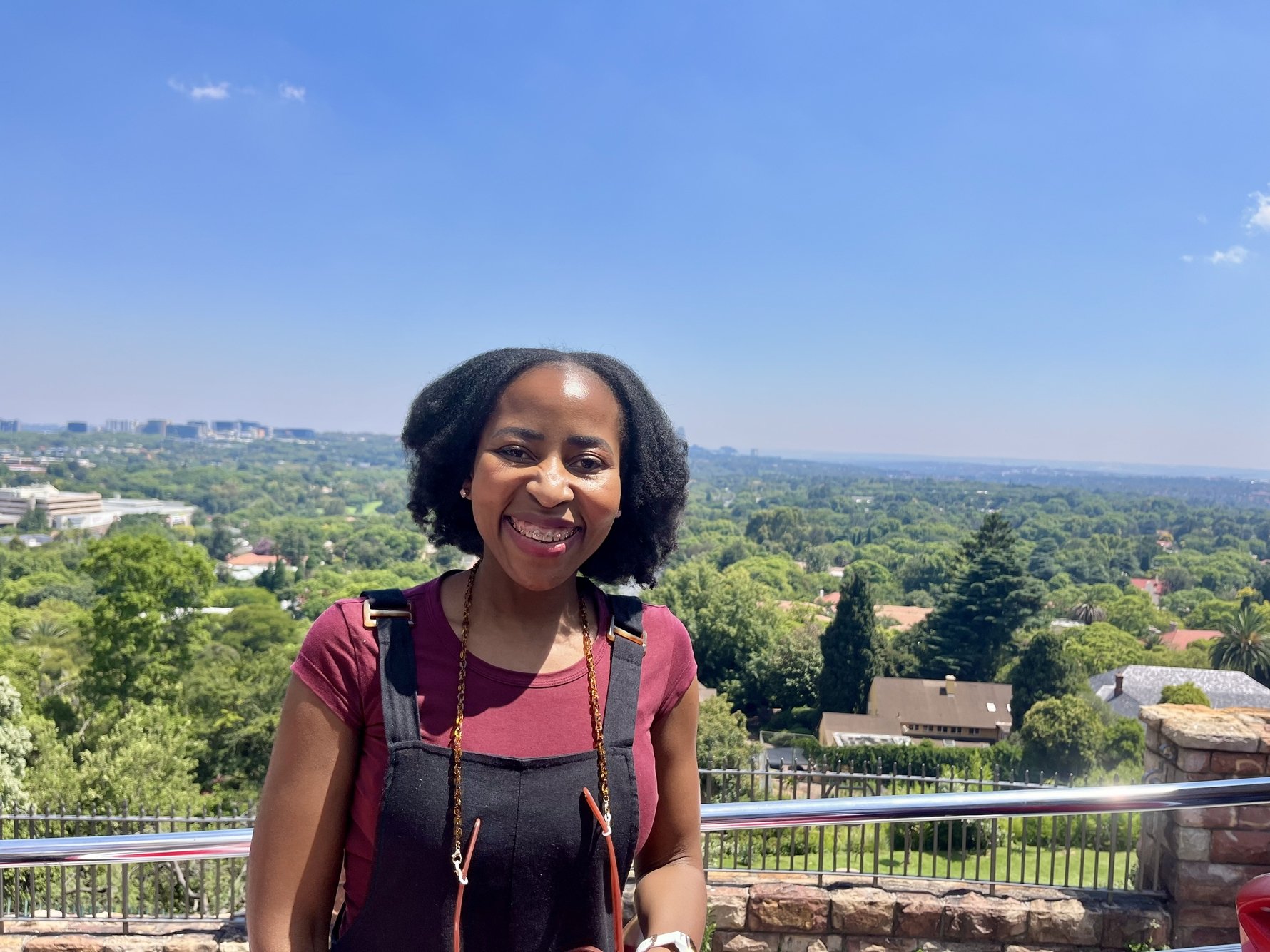
How have stories shaped you and enriched your life?
I believe that stories are threads that have shaped my existence. I come from a family with a rich history captured in the stories shared by my late maternal grandmother, who ensured I knew my origins.
"Stories shape our perception. They are particularly vital because they hold the keys to our empowerment and liberation."
Is there a narrative you'd like to shift?
The narrative that vulnerability is a weakness.
What do you love about The Moth and the work they do?
I learnt about The Moth in 2015 for the first time. Since then, my life has never been the same. Through The Moth, I learnt how important our individual stories are. I also love how The Moth embraces diversity and inclusion in the stories that are being shared.
What are your reflections on the theme of The Moth's upcoming Mainstage event, 'Power and Possibility'?
In storytelling, we exercise the power to shape narratives that inspire, uplift, and transform. Power and possibility are exactly what stories offer. Stories inherently have power in them because they are our foundation.
What do you think makes a story great?
It has to be its authenticity and the vulnerability of the storyteller when the story is being shared. I believe that a great story is not only told but also lived and breathed. Its relevance to the storyteller at that moment in time is the cherry on top.
Mohammad Jasem – storyteller
Syrian-born, Turkey-based Mohammad Jasem graduated from general medicine in 2004 and went on to specialise in cardiology. Responding to the Syrian conflict, he returned to Raqqa late in 2012 to work in a clinic assisting victims of war and refugees. He was instrumental in establishing EWARN in northern Syria, a health information system for surveilling and monitoring epidemiological diseases, and worked as a surveillance officer in Tal Abyad in 2013. The following year he became the central surveillance co-ordinator for Syria's Assistance Coordination Unit (ACU), and in 2015 took over as leader of EWARN. Jasem and his teams detected polio outbreaks in 2013 and 2017 and performed polio campaigns to prevent transmission.
Michael Maina – storyteller
Michael Maina is a medical doctor working in the accident and emergency department at Kenyatta National Hospital, the oldest and largest hospital in Kenya. Passionate about sexual and reproductive health rights and justice, Maina is a member of the Society of Maternal Fetal Medicine and the outgoing country director of the Kenyan chapter of the International Youth Alliance for Family Planning. "As a doctor, storytelling is integral to my practice," he says. "Every patient's story is a vital piece of their diagnosis and treatment, allowing me to approach healthcare with empathy and understanding. In my advocacy work for sexual and reproductive health rights, storytelling humanises statistics, making complex issues relatable and compelling for stakeholders."
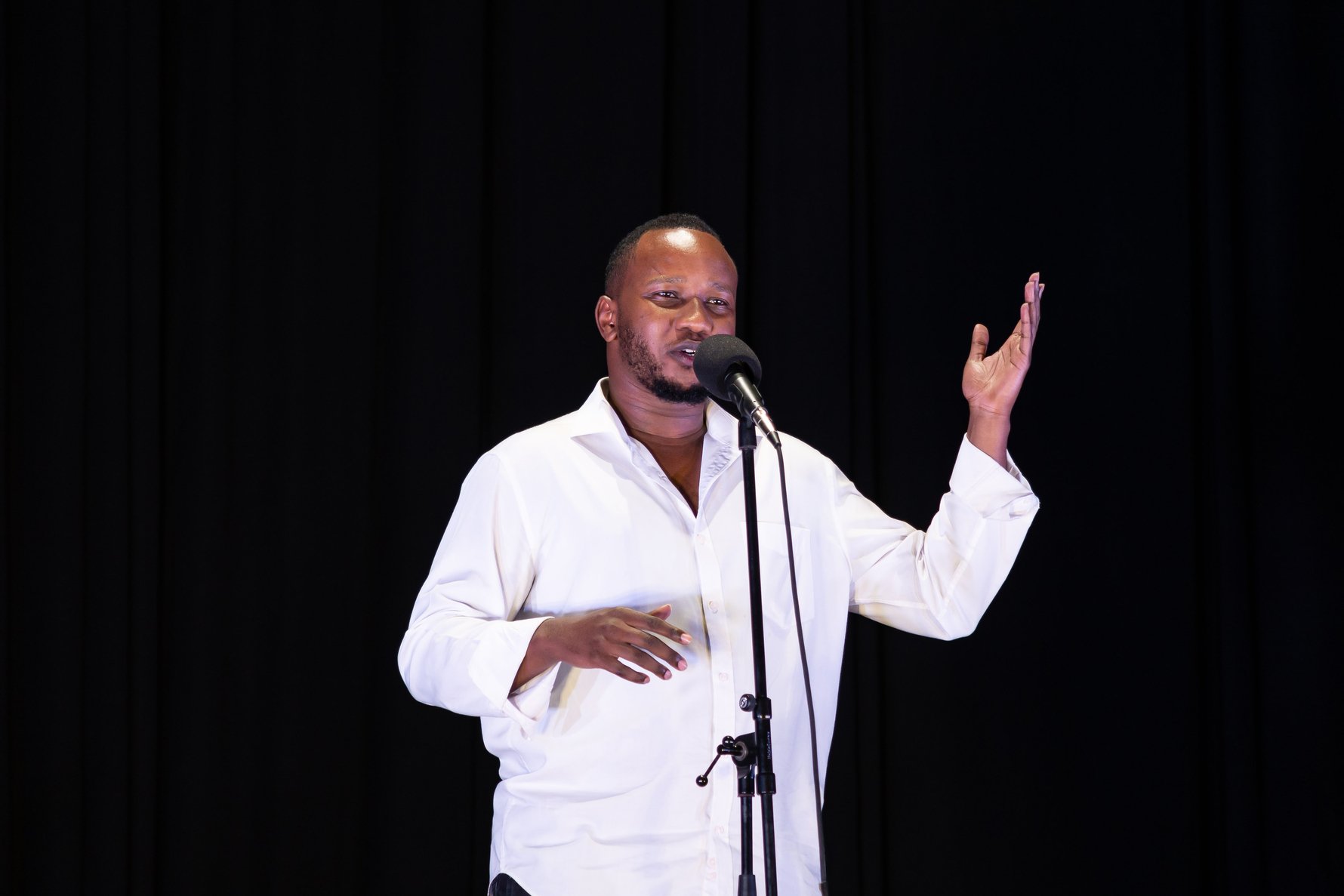
How have stories shaped you and enriched your life?
Stories are windows into human experience, offering profound insights and a deeper understanding of myself and others. Through storytelling, I've gained clarity, perspective, and a sense of connection to the world around me.
Why are the stories we tell ourselves (and about ourselves) so vital?
Our personal narratives shape our identity and understanding of the world. From ancient myths to modern memoirs, stories have been our primary means of making sense of life's complexities. By examining and reshaping our internal narratives, we can uncover hidden truths, embrace vulnerability, and cultivate deeper connections with others.
What do you love about The Moth and the work they do?
The Moth's commitment to amplifying diverse voices and shedding light on social issues resonates deeply with me. Through powerful storytelling, they spark conversations, challenge assumptions, and inspire positive change.
"Whether it's a tale of triumph, loss, or redemption, a great story leaves a lasting impression and prompts reflection long after it's been told."
How can we use the art of storytelling to harness the power of stories for good?
Storytelling has the unique ability to bridge divides, foster empathy, and inspire positive change. By sharing authentic narratives that highlight common humanity and address social issues, we can ignite meaningful conversations, challenge stereotypes, and build a more inclusive and compassionate society.
If you could recommend just one episode of The Moth to someone, which would it be and why?
I would recommend Terence Mickey's story, My Grandfather's Shoes. In this delightful episode, Mickey shares a charming and humorous story about his grandfather and the unexpected gift he inherits. I love the witty anecdotes and heartwarming moments. It always leaves me smiling and entertained.
Matilda Matabwa – storyteller
Dr Matilda Matabwa is a gender specialist and theologian, and the first female secretary general in World Assemblies of God. Throughout her career, she's also been the chairperson of the Malawi Roads Authority, and an executive and facilitator with the African Women Network, the Evangelical Association of Malawi, and World Religions for Peace, among other organisations. She lives in Malawi with her family.
Webster Makombe – storyteller
Zimbabwe's Webster Makombe is a food systems activist and nutrition advocate. He's a core group member of the Act4Food campaign which seeks to strengthen local food systems through indigenous food knowledge. Under this banner, he curates a mini-food festival in Zimbabwe called NhapiTapi Food Festival. Makombe is also a youth leader in the Scaling Up Nutrition (SUN) movement. Professionally he works as a pro bono lawyer at Justice for Children, a local NGO providing legal aid for kids whose rights have been infringed. An avid reader turned writer, Makombe uses literature and music as tools for carrying out his advocacy work. "As a lawyer and a lobbyist, storytelling helps drive the point home, be it in court, when drafting head of arguments or presenting an advocacy piece before a panel, or being a keynote speaker at a conference," Makombe says.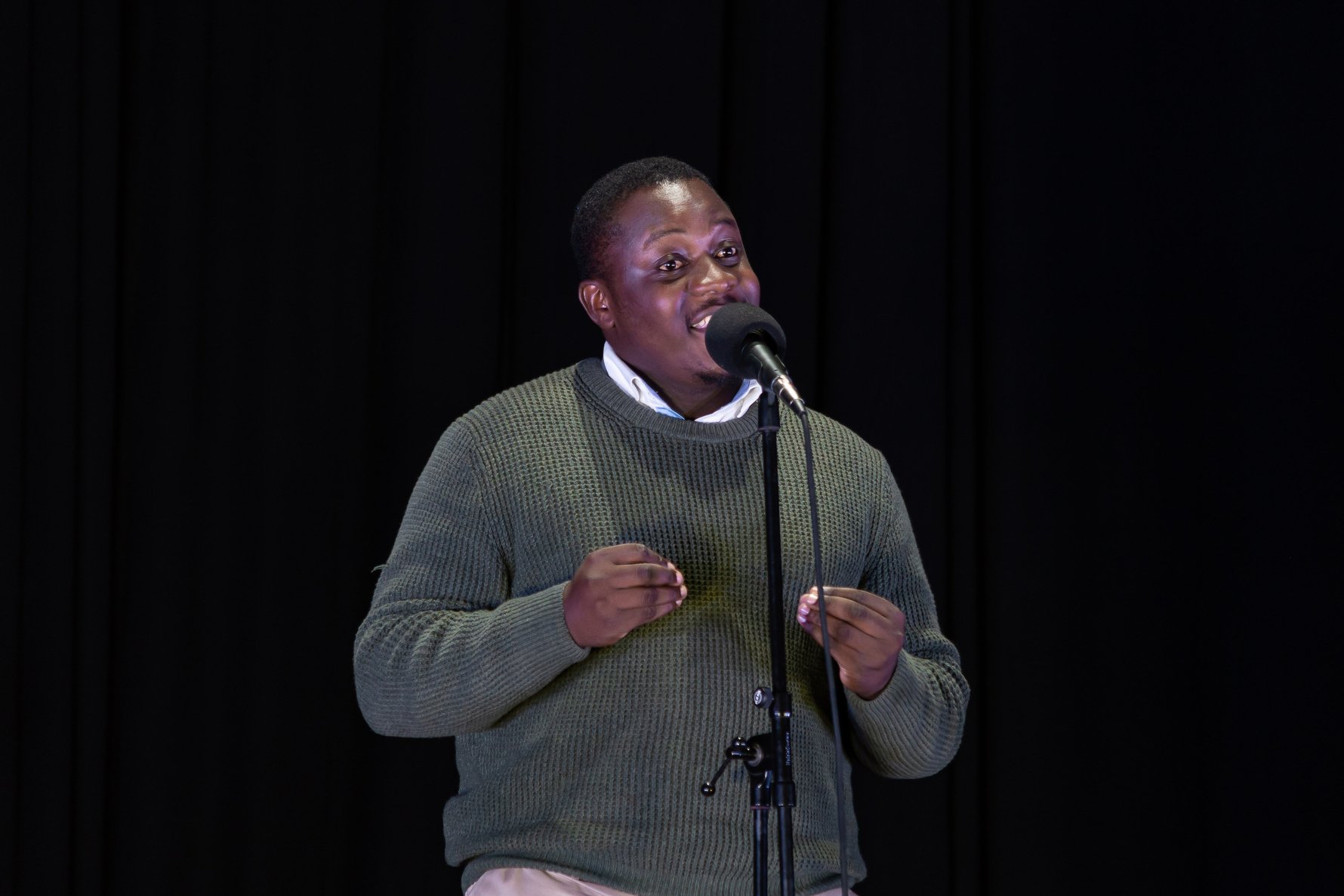
How have stories shaped you and enriched your life?
I am a reader and I love literature. Stories have always been a gateway for me to transcend into places my feet would possibly never go and also just to experience other people’s lives through words. James Baldwin says, "It was books that taught me that the things that tormented me most were the very things that connected me with all the people who were alive, or who had ever been alive." I would replace the word 'books' with stories.
Is there a narrative you'd like to shift?
The "hungry Africa" narrative. I am a food systems/zero hunger activist and push for food sovereignty. I like that you used the word narrative because I believe the problem lies in the wording and the naming of things. Sorghum, a grain indigenous to Africa that grows well under the African climate, is called a "small grain" but it’s the same grain size as wheat. So why is wheat not called a small grain?
"I'm known to say as people we have nothing, nothing at all. Even the names we call ourselves are given to us by our parents and other people. The only thing we have is our word; our worldview and our experiences."
What do you love about The Moth and the work they do?
I love that they are creating a platform for personal stories to flourish and be heard, offering a platform so huge that their reach transcends borders. It feels like a global village and a safe space at the same time.
How can we use the art of storytelling and harness the power of stories for good?
There is nothing new under the sun. What you experienced, someone else is experiencing too, be it a good thing or a bad thing. As such, storytelling can really help people know they are not alone.
If you could recommend just one episode of The Moth to someone, which would it be and why?
It would be Lindiwe Majele Sibanda’s Grandma Mahembe’s Farm. It was the first story I ever listened to from The Moth, and it resonates very well with my own. It also shows how Zimbabwe is an agricultural nation and that Zim-women carry the country on their backs.
The Moth's Mainstage event in Joburg is now sold out but takes place at UJ ARTS Keorapetse William Kgositsile Theatre on Sat, Mar 16.


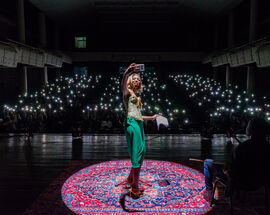
_m.jpg)



Comments